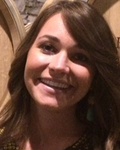The “What I Wish I Knew” series of articles is a service of AAPP’s Resident and New Practitioner Committee. Articles are intended to provide advice from experts for students, residents, and new practitioners. Articles are not intended to provide in-depth disease state or pharmacotherapy information nor replace any peer-reviewed educational materials. We hope you benefit from this “field guide” discussing approaches to unique problems and situations.
 Dana Chiulli, PharmD, BCPP
Dana Chiulli, PharmD, BCPP
Mental Health Clinical Pharmacist Practitioner
VISN 06 Mental Health Clinical Resource Hub
Dr. Chiulli is an outpatient mental health clinical pharmacist practitioner for the VISN 06 Mental Health Clinical Resource Hub. She previously served as a PGY2 Psychiatric Pharmacy residency program director at the Ralph H. Johnson VA Medical Center and Palo Alto VA Healthcare System. Dr. Chiulli received her BS with honors at the University of Georgia and her Doctorate of Pharmacy, cum laude, from South University School of Pharmacy. She completed her PGY1 Pharmacy Practice residency at Baptist Medical Center in Jacksonville, Florida and her PGY2 Psychiatric Pharmacy residency at the San Diego VA Medical Center. Dr. Chiulli serves as co-lead for the Veterans Health Administration Clinical Pharmacy Program Office mental health pharmacist subject matter expert workgroup.
Congratulations, you are a new Residency Program Director! If you were recently given this title, you’re excited, overwhelmed and a little apprehensive about what lies ahead because by contributing to the development of a clinical pharmacist, you are making an impact on the profession of pharmacy.
Here are my top 5 tips to being a successful new RPD:
- Use ASHP as a guidebook and lifeline. ASHP’s online resources are comparable to the popular “For Dummies” reference books with a multitude of resources and tools available to help create a successful residency program. The website dedicates a page to Residency Program Directors, which contains helpful links for starting a residency, the accreditation process, example documents and frequently asked questions. You can also access the bi-annual ASHP Accreditation Services Office newsletter, the Communiquѐ, as well as the online discussion forum available to ASHP members, ASHP Connect. If you still have questions, the ASHP staff is readily available by email and telephone.
- Find a mentor. Ideally, the mentor will be an established RPD who can provide guidance throughout the year. If you are becoming the RPD for an existing program, look to the previous RPD. For a new program, I recommend reaching out to the RPD community through CPNP or asking the RPD from the residency program you completed. You want to ensure the person you ask can dedicate time to share their knowledge, experience and resources.
- Ensure support and communication from program preceptors. There is no [insert your name here] in team. The RPD is responsible for coordinating and overseeing program activities, therefore, it is imperative to receive support from the preceptors who are providing direct supervision to the resident. An excellent way to solicit support and communication is to have regularly scheduled Residency Advisory Committee meetings to discuss resident progress, as well as assess the needs of the preceptors. For newly established programs, new preceptors, or preceptors in training, it is important to incorporate activities which promote effective communication and constructive feedback into preceptor development plans.
- Document EVERYTHING. As pharmacists, we have all suffered from documentation burn-out, but creating reference documents is extremely beneficial for organization and time management. I open my “residency quick reference” folder almost daily. I recommend creating reference documents for residency procedures such as on-boarding, orientation, close-out, education funding requests, media requests, important deadlines, and points of contact.
- Self-reflect and solicit feedback. Just as we instill in our residents, honest and ongoing self-reflection is key. Identify your strengths and areas for improvement and ask for qualitative feedback from the preceptors and residents. To hold myself accountable for this during my first year as an RPD, I completed quarterly self-evaluations and asked the preceptors to complete anonymous electronic evaluations to identify my strengths and areas for improvement.
